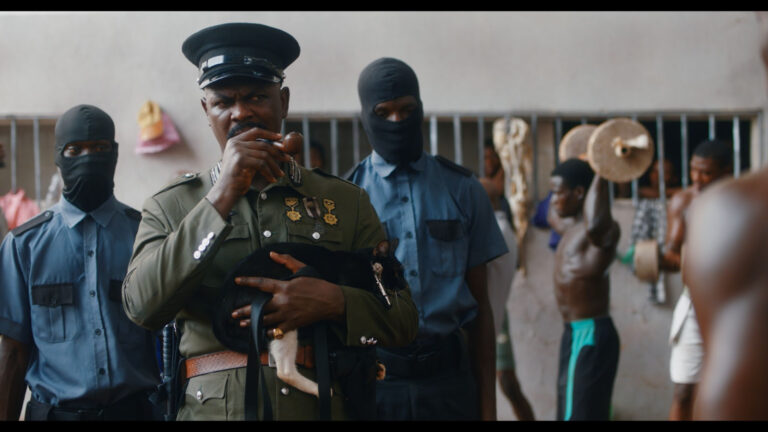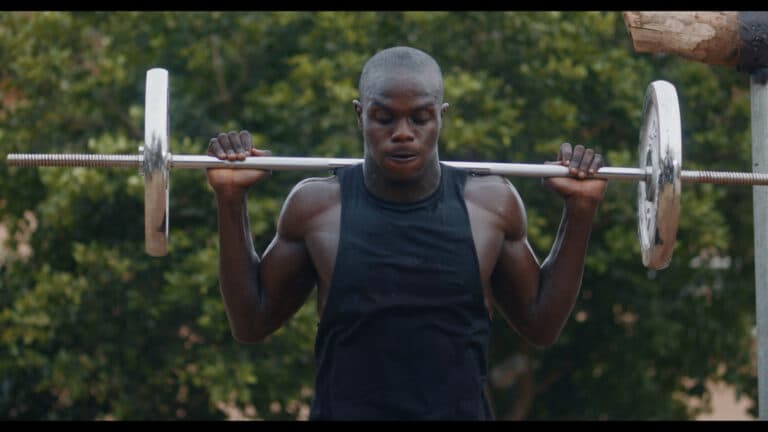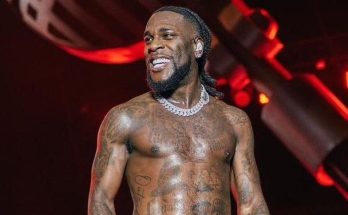By Marvellous-Merit Ekebi
Sometimes, fiction voices the truth loudly and clearly. Suky does this lucidly by unearthing the rot that we have gotten used to. Nigeria Correctional Facilities have become warehouses for the poor and the powerless, and Suky rips open the seldom-told stories buried beneath concrete walls. Suky is more than a film—it is a chilling indictment of Nigeria’s criminal justice system. Without resorting to sensationalism, it captures the numbing monotony of incarceration, the emotional decay, and the slow violence inflicted by a system more concerned with confinement than correction. In doing so, the film asks an unsettling question: who really belongs behind bars, the criminals or the architects of injustice?
From the claustrophobic cinematography to the sparse dialogue, every creative choice points to an unflinching truth: Nigerian prisons are not just overcrowded—they are dehumanising, and until the country reckons with the social rot that these institutions expose, the chains of injustice will continue to rattle far beyond the prison gates. Directed and produced by Ola Cardoso and Bamidele Alusi, the movie provides a pictorial representation of the failing state of the Nigerian Correctional System and the pressing need for reform.
The movie is centred around a young man named Suky, played by newbie James Damilare Solomon, who is on a quest to obtain his freedom from prison and avenge his father’s death. He gets suffocated by the four walls of the prison, and through his eyes, we see how bad things truly are. Suky is forced into joining a vicious underground fight club known as Ijá Dambe (Dambe fight) after being promised freedom by the Chief warder, Marshal, played by Fakunle Olarotimi, who refers to himself as his ‘Lord and saviour’. As Suky battles fierce opponents in a competition that mirrors the high-stakes world of Nigerian prisons, he must confront his painful past, which revolves around a quest for vengeance and a desperate search for freedom.
Suky is a reflection of the systemic failures that lie within Nigeria’s Correctional system, specifically delayed justice and misuse of power. Shedding light on life behind bars, it exposes the cracks, forcing us to ask if our prisons are truly built for correction or just punishment? In the movie, the titular character is detained in an overpopulated ward where Ijaya, played by Yekini Ibrahim, has the say-so and is the only one who gets the best broth. And just like in Suky, today, the correctional facilities in Nigeria are far from adequate. Nigeria’s prison system is operating well beyond its capacity. According to the World Prison Brief, Nigerian prisons have an estimated population of over 80,000 inmates, despite the system being built to accommodate around 50,000. This means that these facilities are running well over capacity. The overcrowding contributes to dangerous living conditions, including unsanitary environments, a lack of proper healthcare, and insufficient food. A report by Premium Times shows that Ikoyi Prison in Lagos, one of Nigeria’s most notorious facilities, is known to be extremely overcrowded, with many prisoners living in deplorable conditions. These cramped conditions often lead to the spread of diseases like tuberculosis and other preventable illnesses, further exacerbating the plight of inmates.
Justice Delayed; Justice Denied
As the movie progresses, we find out that Suky never got a chance to prove his innocence, as he was incarcerated without due process. This is oddly similar to the state of things in Nigerian Correctional facilities. In Nigerian Prisons, thousands of inmates are kept behind bars without ever seeing the courtroom. According to the NCS 2025 Report, 67% (52,937) of the total 79,555 inmates are awaiting trial. These people are yet to stand trial, and a good number of inmates have been waiting for years. This systemic delay in the judicial process is one of the root causes of overcrowding in Nigeria’s Correctional facilities.

In 2022, BBC Africa interviewed a woman named Joy. Her husband was arrested and imprisoned for three years without trial, and he eventually died in custody without being tried. Joy’s husband, Mkpeanebari, was arrested in 2018 just three days after their only son was born. He died in custody after three years in prison without trial. It takes an average of four to five years for many pre-trial detainees to even be seen in court. This lengthy detention without trial violates their basic human rights and leaves many individuals imprisoned for crimes they may not have committed. Over the years, there’s been a severe rise in human rights violations recorded in Nigerian prisons.
In Suky, the prison is portrayed as overcrowded, filthy and violent. Prisoners are subjected to physical abuse and violent control by both inmates and wardens. No visible attempt is made to rehabilitate prisoners. Inside the prison, physical abuse is a regular occurrence, from warders and fellow inmates alike. Such treatment violates the right to dignity and freedom from torture, which every prisoner is entitled to, regardless of the crimes they are been accused or convicted of.
Corruption is rampant within Nigeria’s prison system, with reports of bribes and illegal activities by both prison staff and officials. An investigation by Fisayo Soyombo exposed the sale of illegal mobile phones to inmates in prisons, with prison officials complicit in this illegal trade. Such systemic corruption not only hampers the judicial process but also perpetuates the suffering of prisoners, who are left vulnerable and exposed to exploitation.
Glimpse of Reform and Rehabilitation
One of the most poignant moments in Suky comes during his encounter with Ijaya, who took a liking to him. Ijaya is a fellow prisoner who becomes a mentor and a source of transformation. At first glance, the duo seemed to be the complete opposite. Suky, a newbie in the prison system, is consumed by his quest for freedom, while Ijaya, a seasoned inmate, has already learned the harsh realities of life behind bars. It is through these very shared experiences that their bond deepens. Suky’s participation in the Dambe fight, where prisoners often fight to gain respect through physical strength, becomes a pivotal moment in his journey. Initially, he sees it as a way to assert his strength, yet it’s Ijaya who helps him understand that real strength lies in self-control and awareness.Suky’s relationship with Ijaya becomes an embodiment of what prison reform could look like: human connection and self-discovery. Inmates would learn from each other, offering wisdom and guidance instead of continuing the cycle of violence and despair. Suky offers rare moments that hint at what reform could look like if given room to take root.
The downfall of Marshal, the brutal chief prisoner in the film, mirrors public calls for accountability within the Nigerian Correctional Service. His unchecked reign of terror and eventual collapse show the dangers of allowing power to go unchallenged. In many Nigerian prisons, wardens and officers wield disproportionate control, often without proper oversight. His removal in the film acts as a stand-in for the kind of institutional purging that is believed to be necessary for genuine reform.

Also, the experiences of Dr. Simisola, the prison doctor, speak to another dimension of the system’s failures, one that specifically affects professionals within the system. Although she is not incarcerated, she is stripped of her autonomy and freedom by Marshal. This mirrors real-life accounts where humane or reform-minded officers are silenced, sidelined or frustrated by a system resistant to change. Her eventual freedom in the film is symbolic of a movement of possibility where professionalism, empathy and rehabilitation are no longer suppressed.
Through their contrasting fates, Suky imagines that a reformed Nigerian prison system might allow accountability for abuses of power and freedom, both literal and ideological, for those advocating for change. It reminds us that while the current state of correctional facilities is grim, there remains a potential for transformation. But only if oppressive structures are dismantled, and reforms are empowered to do their work without fear.
Inmates are People, not just Prisoners
The Nigerian prison system often reduces individuals to their crimes, ignoring the potential for rehabilitation. Suky challenges that, showing that with the right environment, even the most hardened can change.
Correctional facilities must prioritise rehabilitation over punishment—programs that address inmates’ mental, emotional and social needs should become standard.
The transformative bond between Suky and Ijaya shows a path that could yield good results. Ijaya becomes a moral compass for Suky, something the system itself failed to provide. Peer-led reform programs should be introduced, allowing inmates to learn from and support one another.
Sometimes changes come more easily when they’re spoken in a familiar tone. One of the most haunting sequences in Suky is the Dambe fight, an underground brutal boxing contest where prisoners are pitted against each other for the entertainment and profit of those in power.
This is a metaphor for how imprisoned individuals are often treated as disposable; used, abused and discarded. There is a pressing need for stricter regulations against the abuse of prisoners’ rights, especially with unregulated or informal prison activities.
Oversight bodies must ensure that no form of entertainment or engagement inside correctional facilities comes at the cost of inmates’ dignity or life.
This article first appeared in ACLAS Press on the 26th of April, 2025.

